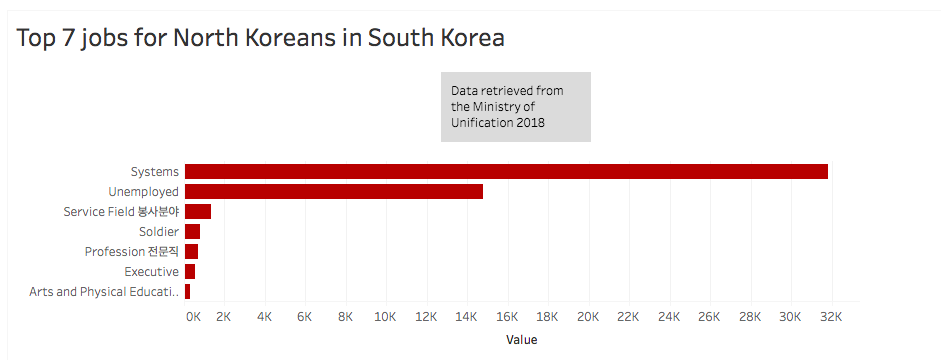After hanawon
Most North Korean defectors say leaving the Hanawon is the most overwhelming part of their journey to South Korea. For many refugees, it is the moment they realize they are on their own.
The Ministry of Unification works with the central government, provincial governments and NGOs to help North Korean refugees. Every North Korean refugee is assigned a social worker and a protections officer. The social worker is available for mental health and housing related issues. The protections officer checks in on refugees who feel they may be targeted by the North Korean regime for defecting. The protection officer could play a role in unification. The Ministry of Unification explains:
“If unification occurs all of a sudden as in Germany, protection officers for community services will undertake the most important duties at local governments since they are public officials who best understand North Korean people. If they perform their duties with the mindset that they are preparing for unification at the local government level, unification will greatly benefit the country, not put it into chaos.”
For initial settlement, refugees receive 7 million won (US$7000) from the South Korean government. They can apply for grants to attend any university in Korea. There is also an incentive of 2-million Korean Won (US$2000) for North Koreans who maintain employment for over six months. The funding is not enough to survive in South Korea.
The Hana Center provides refugees with 80 hours of orientation covering region specific information. There are 26 Hana Centers located throughout South Korea.
“Some people have depression, other people have anxiety,” says Juwon Oh, who works at the Hana Center in Daegu. “They have trouble adapting in society like other migrants.”
The Hana Center provides mental health support services and regular counselling. The mental health program is centered around settlement stressors, like finding a job or navigating the South Korean culture. For refugees with more serious issues like PTSD, the Hana Center refers patients to doctors. Oh says not understanding South Korean culture makes it difficult for North Koreans to maintain friendships with South Koreans.
“They are afraid of South Korea’s politics and culture. So it can be hard to make relationships,” says Oh.
Jobs on arrival
After North Koreans settle into their new home, it’s a race to find a job before the government funding runs out. The Hana Center 2017 Settlement Survey of North Koreans Living in South Korea found that the average work week for North Korean refugees was 48.6 hours, while the average work week for South Koreans surveyed was 39.7 hours. Without higher education North Korean refugees are limited to janitorial and service type jobs. The Settlement Survey also found on average North Korean refugees makes a monthly salary of 1,787,000 won (US$1787) while a South Korean makes 2,423,000 won (US$2423).

Education subsidies
In addition to working long hours, North Koreans may attend school or job training to catch up to their South Korean compatriots.
North Korean students between the ages of 16 to 19 can attend an Alternative High School geared towards bridging learning gaps for refugees who are having a hard time adjusting to the South Korean system.
Older students may attend classes at Hagwons or private academies to focus on a specific subject like English or Math.